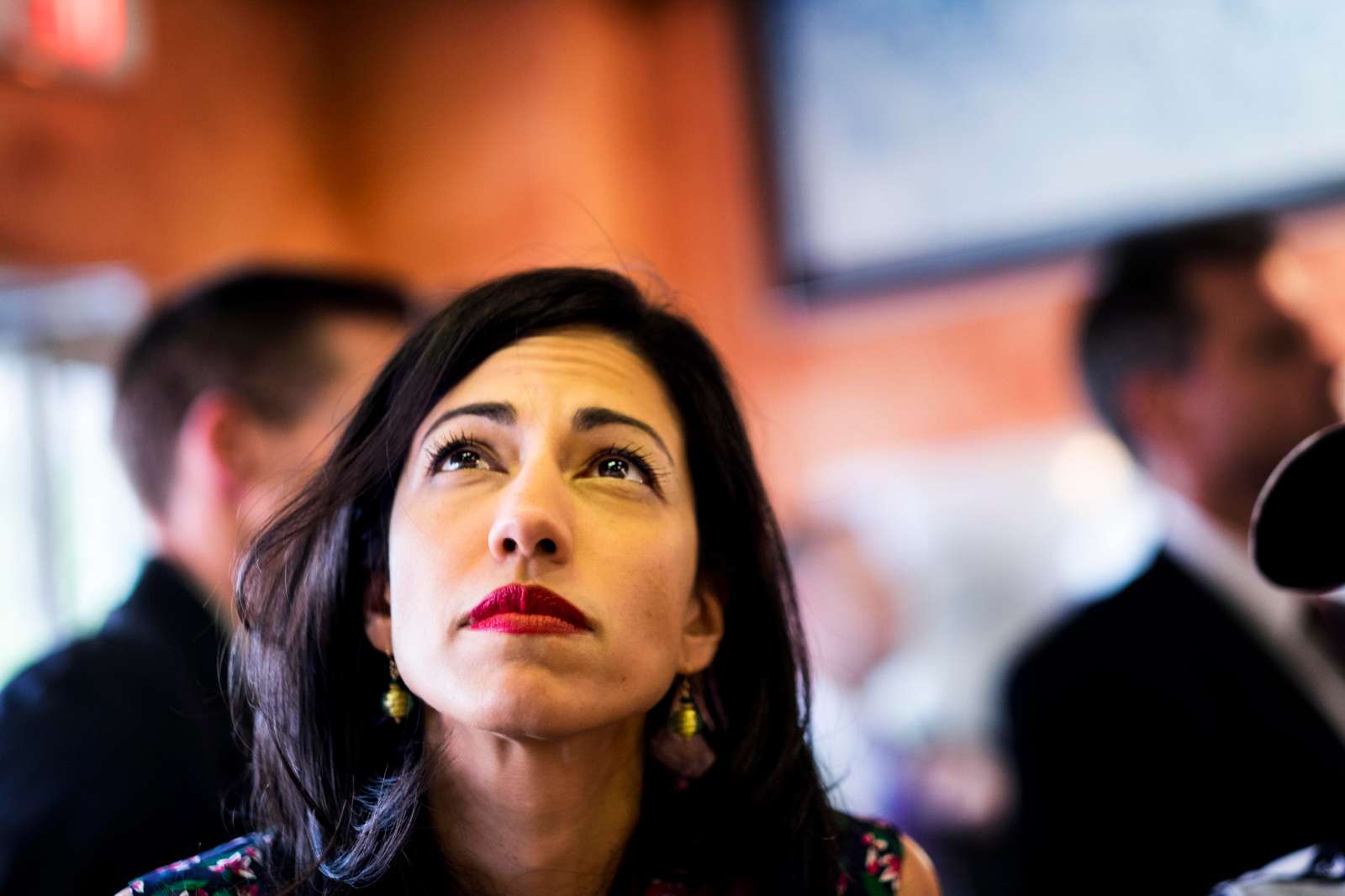
“Political Wife.” That image conjures up a fairly classic figure. You picture the same thing I do, right? Knee-length, floral dress, toothy white smile. She stands beside her husband. Her image hasn’t changed much over the past century, agreeable, traditionally pretty, and quiet. She also tends to get cheated on. Of course, in recent decades, we have seen many women challenge this cast, from Hillary Clinton to Jane Sanders, but stepping outside the lines often means that there is hell to pay. The media keeps these women under a scrupulous microscope. As women today are managing careers of their own and stepping into the political arena, navigating the role of dutiful political wife has grown increasingly complex.
There is perhaps no better example of the shadow that being “the wife” casts over a career than Huma Abedin, a woman who has played both the political wife and the Politico. Abedin had built a career and reputation long before she met her future husband, Anthony Weiner. She was born in the US but grew up in Saudi Arabia before attending George Washington University. Incredibly accomplished, young, and promising, Abedin would intern at the White House and work as assistant editor of the Journal of Muslim Minority Affairs from 1998 to 2008. Her tenure at the White House caught the eye of First Lady Hillary Clinton, and she would serve as Clinton’s personal aide to the present day.
When people think of Abedin, they likely think of her unfortunate position in the scandals of her now ex-husband, followed by her tenure as Clinton aide. Abedin married Anthony Weiner, a former New York Congressman, in 2008. By 2011, he was embroiled in a series of sexting and corruption scandals that would continue to crop up for the next seven years. When he attempted to run for Mayor of New York City in 2013, he dragged Huma down with him as new details of his infidelity emerged. The media zeroed in on Abedin, asking why she stayed with Weiner, speculating on her parenting skills and the disintegration of their marriage. Once a power couple, Abedin stood alongside Weiner, press conference after press conference, with a smile plastered onto her face as he addressed new allegations. She remained married to Weiner until yet another scandal came to light in 2016 while she was working on Hillary Clinton’s Presidential campaign. By 2018, their divorce was finalized.
Abedin had kept a low profile throughout her career, allowing her work as a political strategist to speak for itself, with protecting Clinton’s character as her first priority. But the scandal framed her in the media as a betrayed wife and poor political operator. Weiner’s dirty laundry interfered with her work. She was deemed incompetent. Moving on from a corruption scandal is one thing, reconstructing a reputation after being framed as “Weiner’s Poor Wife” is another. Certainly, Hillary Clinton understood what it meant to pay the price for her husband’s actions. The media, so quick to cast the political wife aside, questions her agency and intelligence when her husband confesses to infidelity and she stays. While Abedin eventually left Weiner, it was not before she was presumed weak and lacking dignity.
Now, post-divorce, post-election, Abedin chose to release a memoir, Both/And. Unlike Clinton or other women in Abedin’s arduous position, she did not wait decades to share her thoughts on the scandal, instead, she directly counters the “poor Huma” narrative. In recent interviews and on her book tour, she recognizes the ugly truths of her marriage with vulnerability and honesty. As Abedin regains control of her reputation, she does not allow a singular moment to define her, she counteracts the scandal with her own recitation, devoting larger portions of the memoir to her White House tenure, childhood, faith, and future ambitions.
Abedin’s rebranding and next steps will act as something of a roadmap for breaking the mold of the politician’s wife, no longer paying the price for the failures of their husbands. The political-wife archetype will persist, no doubt, as long as the media continues its failure to recognize these women as nuanced. But the public’s perception is no longer limited to headlines, these women have platforms and need not hide their individuality. They can tell their own stories. Seeing Abedin claim her platform as forcefully as she has is a thrilling counter-narrative that has been a long time coming.



